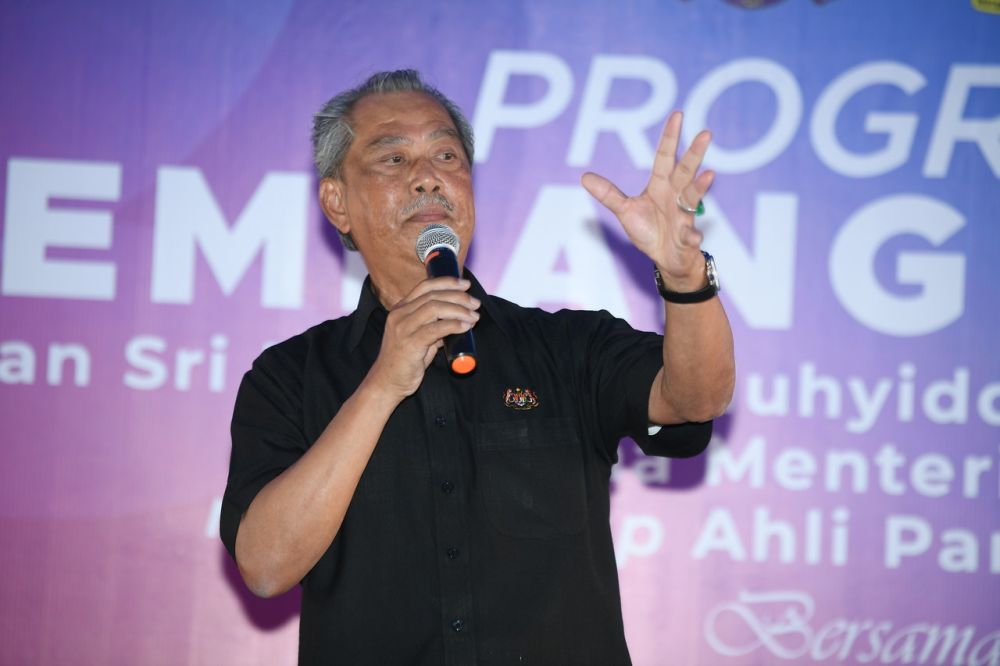
KUALA LUMPUR, Nov 1 — Lawyers have explained that the prime minister will indeed have powers to suspend elections should a state of emergency be declared, after Tan Sri Muhyiddin Yassin suggested the move yesterday.
Muhyiddin’s suggestionwas criticised as an attempt to stifle democracy, with lawyers polled by Malay Mail saying that they don’t see why elections cannot still proceed anyway.
Lawyer Nizam Bashir said that when a proclamation of emergency is declared under Article 150 of the Constitution, it will empower Parliament or the Yang di-Pertuan Agong to enact crisis laws which also included suspending an election.
“Such laws may infringe any provision of the Constitution — Article 150(6) — and the executive can take all administrative measures it deems to combat the emergency in question.
“The issuance of a proclamation of emergency consequently may allow by-elections to be staved off depending on what emerged from the legislation and/or administrative measures that arise.
“Otherwise the typical requirements of the Federal Constitution are to be adhered to,” Nizam told Malay Mail.
Advance Tertiary College senior law lecturer and academic director Daniel Abishegam also echoed Nizam’s views that Article 150 allows the declaration of emergency ordinances that can supersede the Constitution, including suspending elections.
It is for this reason that Abishegam said any declaration of emergency must be done with great care, since it effectively gives the ruling government through the Agong almost absolute power.
Yesterday, Muhyiddin sought to convince the public of the need for an emergency even as his previous proposal to the Yang di-Pertuan Agong was rejected, saying that the upcoming Sarawak state election and the Batu Sapi by-election will still have to take place unless emergency is declared.
Citing the Federal Constitution, the prime minister said the elections will still have to proceed, noting the concern of Election Commission (EC) staff, who face a greater risk of exposure to Covid-19 while serving during the polls.
The Federal Constitution states that an election must be held within 60 days of the Batu Sapi seat being declared vacant by the EC, or the dissolution of the Sarawak State Legislative Assembly.
However, the Sarawak assembly is not set to be automatically dissolved until June next year, which would allow a state election to be held as far away as August next year.
This comes as Sarawak Chief Minister Datuk Patinggi Abang Johari Openg said earlier this month that he does not mind if the state holds its election later rather than sooner in light of the worsening Covid-19 situation in the country.
Meanwhile, the Batu Sapi by-election will be held on December 5, but most the parties have since opted against contesting it.
Muhyiddin’s Parti Pribumi Bersatu Malaysia is among those who have yet to announce its intention for the by-election.
Human rights lawyer Andrew Khoo also agreed on Article 150 and suspending elections, but stressed that the Sarawak state election will be far along enough for new laws to be passed so that an election can be safely held.
“There is still nine more months to go. There is enough time to pass new laws and make regulations and educate the voters to turn the Sarawak state election into a fully postal vote election," he said.
Based on this, Khoo said it is unnecessary for Muhyiddin to declare an emergency.
"If the prime minister can stop thinking about declaring an emergency and starts working now on practical alternative solutions, that would be a better solution,” he added.
International Islamic University of Malaysia’s associate professor Shamrahayu A. Aziz, however, said that without an emergency, an election must be held.
“If there is an emergency, we can either have or not have elections. But if there is no emergency, we must have election within 60 days from the date the seat declared vacant or from the date the state legislative assembly is dissolved,” she told Malay Mail.
“If you don’t have an emergency, you must have an election. If you don’t want an election, you need to declare an emergency,” she added.
Historically, the Federation of Malaya held its first and second general elections in 1955 and 1959 while still under the Malayan Emergency which was proclaimed in June 1948 and only ended in July 1960.
Malaysia would be formed afterwards on 1963, and declared another emergency in 1969 following the bloody racial riots of May 13 after a general election that year. That emergency only ended in 1971 and Malaysia had its next general election on 1974.
Last week, Muhyiddin and his Cabinet attempted to request for the Agong to proclaim a state of emergency, a decision which was rejected by the Agong following a discourse with the Conference of Rulers.
Since the elections are inevitable, Muhyiddin said yesterday he has left it to the EC to determine the necessary SOPs, bearing in mind that voter turnout could be poor. - malaymail



No comments:
Post a Comment
Note: Only a member of this blog may post a comment.